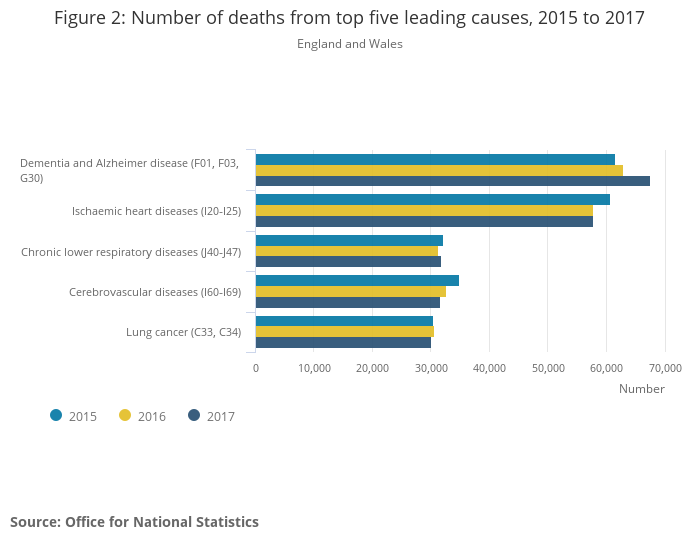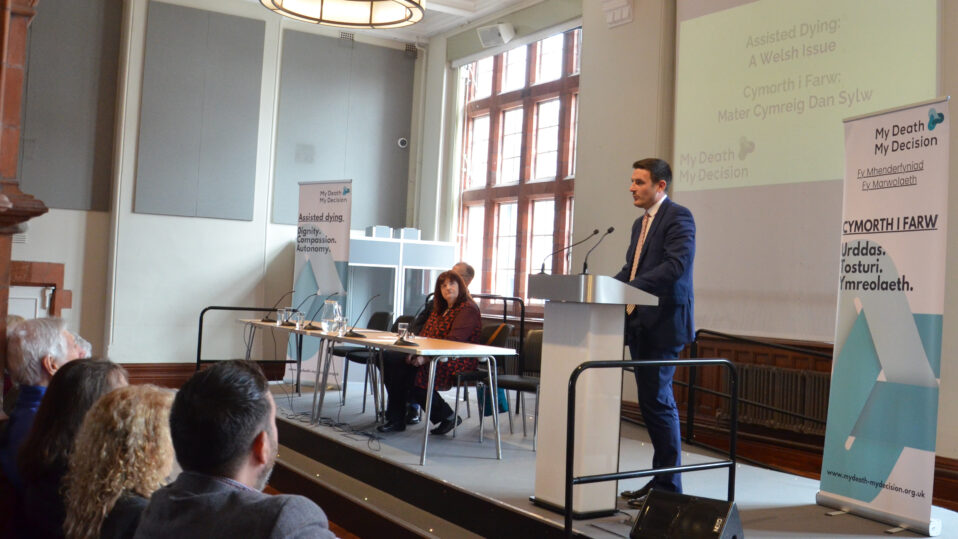The common understanding of the term “terminal illness” is ‘a disease or condition which can’t be cured and is likely to lead to someone’s death.’ This can apply to advanced cancer, dementia (including Alzheimer’s), motor neurone disease (MND/ALS), advanced heart disease and many other illnesses.
However, the term is used in a more restrictive sense in some situations. In England and Wales someone with six months or less to live can claim benefits under Special Rules for Terminal Illness, entitling them to fast-track access and the highest rate of payment for several benefits.
A report from the All Party Parliamentary Group (APPG) for Terminal Illness shows severe problems with the approach of trying to put a life-expectancy time limit on the definition of “terminal illness”. The report cites:
- ‘In 1990 [when the definition was introduced into UK law], many terminally ill people were unlikely to survive for six months after receiving a terminal diagnosis – today, advances in treatment and diagnosis mean that many more people are living with terminal illness for longer.’
- ‘The six-month rule also wrongly assumes that life expectancy can always be accurately predicted. It is very challenging for clinicians to estimate how long someone has left to live’
- ‘Clinicians’ interpretations of the law also vary significantly, and many believe they will be held accountable if their prediction turns out to be wrong’
- ‘The assumption that people with terminal illnesses will need support only for a matter of months until they die is outdated and does not reflect the modern reality of many terminal conditions, where people can live and need ongoing support for several years with conditions that cause progressive debility over time.’
- Evidence from the Royal College of GPs that ‘Doctors may be concerned that a patient’s state of mind will be negatively impacted upon hearing their life expectancy may only be six months – even if this is only a “reasonable expectation”’. For this reason GPs may be reluctant to specify a time scale, especially when they know there is considerable uncertainty.
Dr Clare Gardiner, Senior Research Fellow at the School of Nursing & Midwifery, University of Sheffield
In 2018 the Scottish parliament removed any explicit time limit from the equivalent laws in Scotland, following advice from the medical community there. The APPG report endorses the Scottish approach, saying ‘there is no evidence-based reason why the UK government cannot follow the Scottish government and allow medical professionals to certify that a person is terminally ill, entitling them to fast-track access to benefits, with no arbitrary and outdated time limit.’
Having evaluated the evidence the report concludes that: ‘the current legal definition of terminal illness, with its “six-month rule”, is unfit for purpose – it is outdated, arbitrary and not based on clinical reality.‘ Its first recommendation is that ‘the UK government amends the definition of terminal illness in UK law so that a person is determined as having a terminal illness if it is the clinical judgment of a registered medical practitioner or clinical nurse specialist that they have a progressive disease that can reasonably be expected to cause the individual’s death.’
MDMD strongly support this conclusion and recommendation. We want people to have a better end of life experience, keeping their quality of life as high as possible for as long as possible. People who have an incurable illness that will eventually end their life should have ready access to the benefits they need.
Following the publication of the APPG report, Work and Pensions Secretary Amber Rudd announced that the government will review its benefits system for the terminally ill. MDMD welcomes this news and hopes that this will lead to England and Wales following Scotland’s example and dropping any life-expectancy time limit on its definition of “terminally ill”.
Another problematic use of the narrow six-month definition of terminal illness is as a possible criterion in determining who is eligible for assisted dying. The criterion is used in the US states such as Oregon which permit a limited form of assisted dying. MDMD has always argued against this approach, in part because of the problems with prognosis highlighted in the APPG report.
The campaign group Dignity in Dying chooses to use this six-month life expectancy criterion as their definition of “terminal illness”. They state on their website ‘We believe the right law for the UK is one that allows dying people, with six months or less to live the option to control their death. We do not support a wider law.’ They omit to state why they hold this belief, other than pointing to experience with the law in Oregon where this has been a criterion in the Death with Dignity law there since 1997.
There are alternatives to the Oregon model that should be seriously considered. In 2016 Canada, aware of the limitations of the Oregon model, chose to explicitly exclude any precise time limit from the criteria of their assisted dying law. The Canadian law uses the more flexible criterion of ‘their natural death has become reasonably foreseeable, taking into account all of their medical circumstances, without a prognosis necessarily having been made as to the specific length of time that they have remaining’ (241.2(2d) bold added for emphasis).
From MDMD’s perspective, a better example would be Switzerland, where at least one Briton goes every 8 days for a medically assisted death. Assisted suicide has been possible in Switzerland since 1942 with no life expectancy criterion.
In their written evidence to the APPG for Terminal Illness report, (see section 22, starting on page 52), Dignity in Dying agree that ‘the current definition of terminal illness is not fit for purpose…’, but add the caveat ‘…in regard to fast track access to benefits’. They continue ‘for the avoidance of doubt, Dignity in Dying’s position is that a definition of terminal illness based on a six month prognosis would be appropriate for other purposes, such as access to assisted dying (should the law change on that issue).‘
They argue that the need for additional benefits comes earlier than a need for the option of a medically assisted death and cite the situation in Victoria, Australia where benefit entitlement is available with a 24-month life expectancy, but assisted dying is available only for those with a life expectancy of 6-months or less, (or 12 months or less for those with neurodegenerative conditions). However, they fail to explain why they believe a) a fixed time limit is necessary in the case of assisted dying and b) why that time limit should be six months.
Although MDMD agree that the need for additional financial support will typically come earlier than the need for an option of medically assisted death, in neither case is a fixed time limit appropriate for the reasons given in this APPG report: it is impossible for doctors to accurately predict life-expectancy, and giving a time prognosis may be detrimental to a dying patient’s state of mind. A further complication in the case of assisted dying is that some terminal illnesses cause a loss of mental capacity in their later stages. People with these conditions need to be able to exercise their choice while they can still make a safe and reliable decision if they wish to avoid an imminent deterioration in their quality of life which they consider unacceptable. Mental capacity is frequently lost well before they would have a six month life expectancy.
MDMD believe that people suffering from incurable illness should be helped to have as high a quality of life as possible, for as long as possible, but that when they find their quality of life permanently below the level they can tolerate, they should have the option of a medically assisted death.
Ultimately decisions should to be taken on the grounds of the financial need for state benefits for those with an incurable illness, and the personal end of life choices for those who are incurably suffering. These decisions are not helped by a notion of “terminal illness” based on unreliable life expectancy estimates and artificial time limits. England and Wales should follow Scotland’s example.
Update July 2020
A legal case in Northern Ireland was brought by a woman with MND who was refused additional benefits because she was not within six months of dying. The judge ruled that she “suffered a breach of her human rights”. The BBC report that evidence presented in the case showed that 14% of those who were granted payments because they were expected to die within six months, were still alive three years later.













Recent Comments